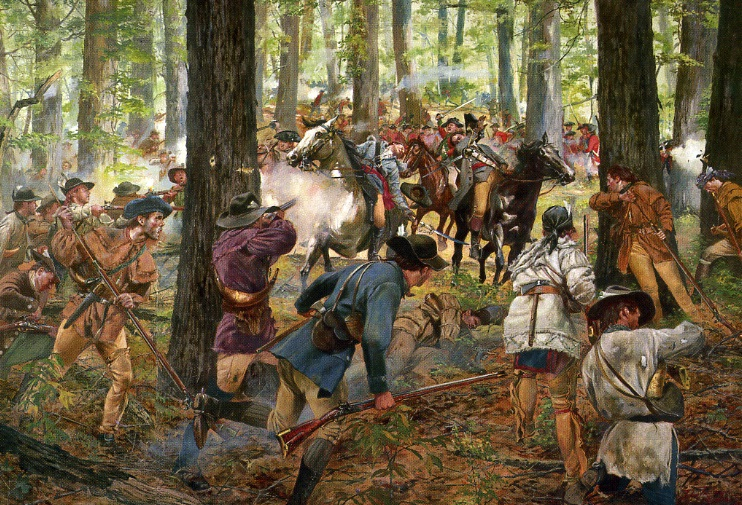The Battle of King's Mountain helped turn the tide in favor of the Americans in the the Southern Campaign
Following his victory at Camden, Cornwallis pushed into North Carolina. The safeguarding of the British left flank was a crucial component of this movement. Patrick Ferguson was given the task of this. Ferguson wanted to add more Loyalists to the ranks, but his fiery declarations angered the local settlers known as the Over-Mountain Men. Under the leadership of Isaac Shelby and John Sevier, men from the Carolinas, Virginia, and Tennessee assembled to engage Ferguson. They cornered him at King’s Mountain on October 7, 1780.
By October 1780, the British launched their Southern Campaign by taking the city of Charleston. Ferguson’s force consisted of 120 British regulars and about 1000 Loyalist militiamen (but 200 were away on a foraging campaign). Ferguson, hearing of the Patriots’ approach, sent a dispatch to Cornwallis asking for reinforcements. Cornwallis was ill and did not reply. On October 7, the Patriots, with about 900 men, surrounded Ferguson’s army at King’s Mountain. Ferguson’s force was out in the open and was equipped with muskets. The Patriots charged up the hill. They were armed with rifles and fought mostly from the woods. American rifle fire was deadly. After four Patriot charges, Ferguson was killed, and the Loyalists surrendered.
The ensuing battle was the first critical victory for the Americans in South Carolina and its impact rippled throughout the region. Ferguson’s entire command was either killed or captured and Cornwallis was forced to abandon his advance and retreat to South Carolina. It also served as a critical deterrent to British efforts to inspire loyalist support. This battle is proved to be a turning point in the war during the Southern Campaign.











